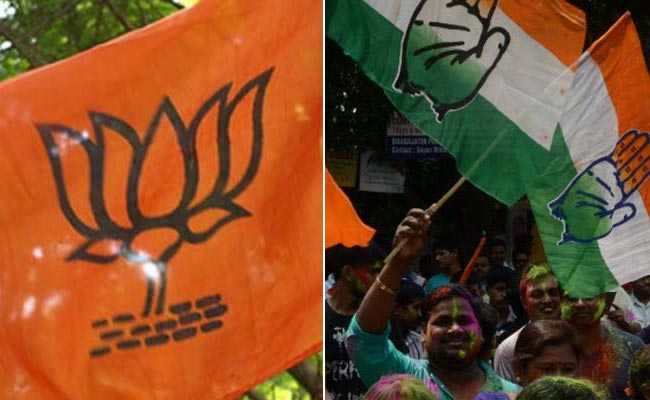As the battle lines become clear for the Lok Sabha elections with the declaration of candidates, BJP and Congress are headed for direct contests in nearly a third of the seats and their performance in these constituencies will significantly determine the final outcome of the elections.
BJP had done exceedingly well in the direct contests between the two parties in 2014. Of the 189 seats in which the two parties were directly pitted against each other, the BJP had bagged a startling 164 and Congress only 25.
This contributed to the BJP getting a majority on its own in the Lok Sabha, the first time the party was able to achieve the feat.
The 2019 scenario is different as the BJP is now the incumbent and Congress is making an effort to dislodge it. The main opposition party at the Centre has also gained by forming governments in three Hindi heartland states — Rajasthan, Madhya Pradesh and Chhattisgarh — that together account for 65 Lok Sabha seats and where the two parties will directly face each other.

Other states where the two parties will square off include Himachal Pradesh (4), Uttarkhand (5), Gujarat (26), Haryana (10), Goa (2), Arunachal Pradesh (2) and Manipur (2). All these are ruled by the BJP.
The two parties will also be the main contenders in the Union terroritories of Chandigarh, Andaman and Nicobar island, Dadra and Nagar Haveli and Daman and Diu.
There will be seats in other states where the two parties will be against each other directly. These include 21 of 28 seats in Karanataka, 11 of 14 seats in Assam, seven of 14 seats in Jharkhand and several seats in Maharashtra including some high-profile contests in Mumbai.
The BJP will face off with the Congress on three seats in Punjab and three in Jammu and Kashmir. There will be important contests between the Congress and BJP on at least two seats in Uttar Pradesh — Amethi and Rae Bareli — and on some seats in Bihar such as Patna Sahib.
In states such as Haryana, there are other smaller players, including the Indian National Lok Dal and the newly-formed Jannayak Janata Party (JJP), besides the Aam Aadmi Party.
AAP had won four Lok Sabha seats in Punjab in 2014 but is now regarded as a relatively weak force. The Punjab Democratic Alliance (PDA), which is seeking to emerge as the third alternative in the state, is also fielding candidates in several seats. The PDA comprises Punjab Ekta Party, BSP, Lok Insaaf Party and the Punjab Manch.
Though the contest is mainly between the Congress and BJP in Gujarat, the Nationalist Congress Party has decided to contest all the seats and this could split the opposition vote. Similarly, there are regional players in Chhattisgarh.
In Delhi it will be a triangular fight between BJP, Congress and Aam Aadmi Party unless there is an understanding between the two to defeat the BJP.
The Congress and BJP will see some prestigious contests, including in Bhopal, where the Congress has fielded former Madhya Pradesh Chief Minister Digvijaya Singh and in Nainital, where it has fielded former Uttarakhand Chief Minister Harish Rawat.





